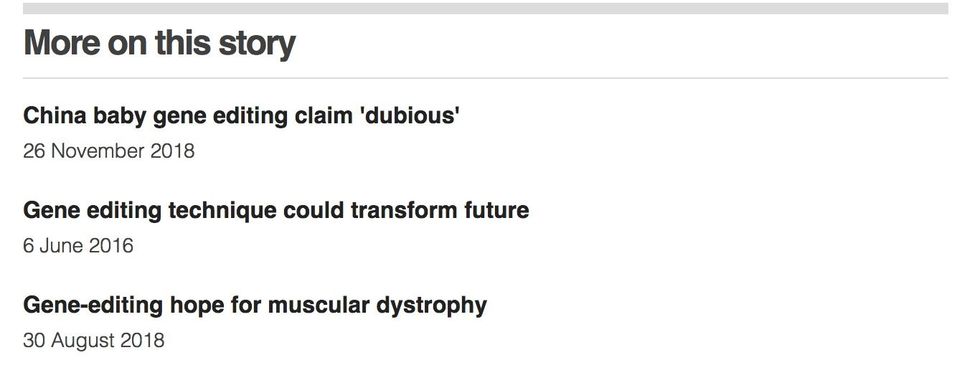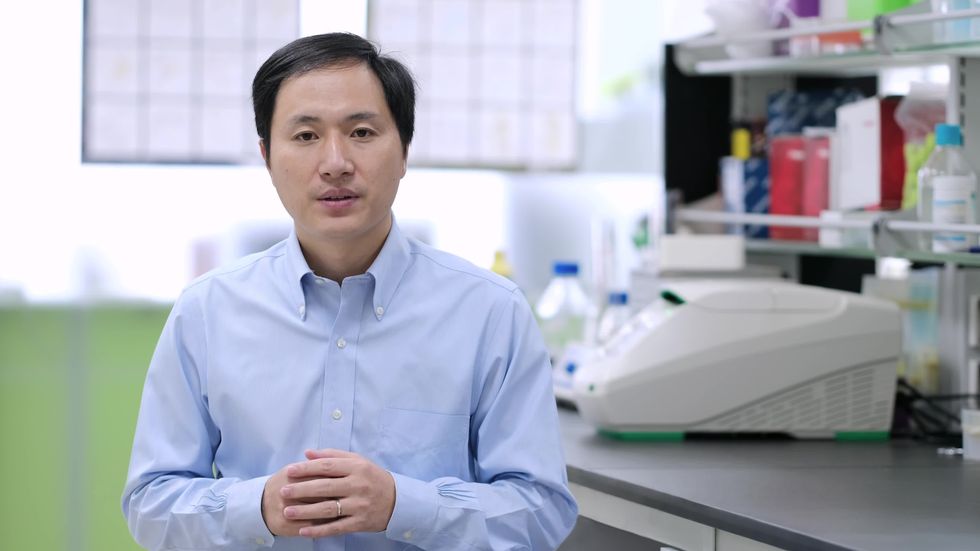At the beginning of December, the international scientific community was rocked by a scientific scandal: a Chinese scientist named He Jiankui presented research of his human experimentation with genetic editing.
He found and felt sympathy for a couple unable to bear children due to the father contracting HIV. He decided to experiment with CRISPR: a gene splicer technology developed nearly a decade ago able to cut and then remove a specified chunk of DNA. Using a combination of CRISPR and an HIV-immune allele, He was able to edit the genome of the first and only cell of this fertilization. This was done with the egg of the mother and the sperm of the HIV-infected father in a controlled lab setting called in vitro fertilization.
He reported to the Human Genome Editing Summit at the University of Hong Kong that the resulting twins were born healthy and without disease.
This research was done with very little peer review nor legal permission due to its controversial topic. Scientists, scientific organizations and even governments on the whole agreed unanimously that He should not have moved to clinical trials. Aside from the ethical dilemma presented by his violation of normal peer review methods, He moved onto human clinical trials before proper research was conducted to predict any possible genetic backlash.
While the scientific community is designed to be accepting to change, it seems they became close minded to the mere notion of genetic editing due to the flaws in He's research.
Should He have done clinical trials with the limited research available to him? Absolutely not. Being a STEM student in a biotech-based Magnet program, it has been made clear that peer review and realization of consequences on a micro and macro level should be ran through ad nauseam before even considering clinical trials.
Does this mean that gene editing and even designer babies are a bad thing? Absolutely not.
Despite his methodology, He had good intentions when seeking to enable a family to be as well as give a man a reason to live while being afflicted with one of the biggest epidemics in human history. He even states in his up close and personal explanation video that the bastardized concept of a designer baby (choosing hair color, eye color and skin color like one would on a character editing screen) is evil and "should be banned". Gene editing to remove and essentially delete the possibility of passing down certain diseases through procreation, however, is a noble cause.
This noble cause is not far from reality as it was shown in 2012 with the development of CRISPR and now with the deletion of the HIV with this new gene edit. However, due to the controversial circumstances in which He's experiment was conducted, the scientific community is sending the backlash not only to He and his zeal but also to the act of gene editing.
It was surprising to hear the breaking news stories of gene editing being successfully conducted being followed with overwhelming condemnation of gene editing. In fact, right below the BBC article first debuting and breaking down the experiment and why it was becoming controversial, some related headlines from earlier in the year read "Gene editing technique could transform future" and "Gene-editing hope for muscular dystrophy", even going so far as to put them under the Health category.

The 180-degree turnaround is really astounding. In the same BBC article on the topic, they speak to an Oxford ethics expert Professor Julian Savulescu. He laments the use of gene editing at all, saying it "exposes healthy normal children to risks of gene editing for no real necessary benefit."
"No real necessary benefit" for "normal children" is about the opposite of what the intent and result was even of this corrupted set of research. Twins Nana and Lulu (pseudonyms) would never have existed or had any chance of surviving had it not been for gene editing even amidst the unnecessary troubles surrounding their birth.
There is a necessary benefit demonstrably shown to be a result of gene editing and the necessary benefit is that we as a species could eliminate the possibility of genetically transferring disease. While it can certainly be argued that designing babies can become evil when it comes to choosing physical traits, no one can really argue against living being superior to dying when it comes to babies. Yes, a baby born with HIV would be absolutely inferior to one born without by simple notion that said infected baby would die.
Professor Savulescu is just one example of multitudes of scientists quick to throw away any notion of genetic editing entirely too quickly. As dynamic as scientific research is, progress has currently come to a screeching halt in the realm of genetics due to how resolute the community has become in opposition to something that can save.
Of all times to fear monger about something potentially game changing, this is not the time. With the internet and the spread of fake news, people have become Flat Earthers and even "anti-vaxxers".
Yes, people have actually become so encapsulated in their own bubble and so untrusting of scientific consensus that they are now against vaccinating for deadly diseases, putting people reliant on herd immunity at risk for infection and causing current pandemics.
Gene editing can soon become a tool utilized more effectively and certainly than vaccinations themselves, possibly even rendering vaccinations outdated and redundant. At this current time, however, scientists themselves are putting this possibility further down the line because they refuse to see the situation as nuanced as they fear yet more public outrage.
The twentieth century saw leaps and bounds made in terms of understanding and using the laws of physics, even using them for our own purposes like the atom bomb. As we are not yet even a fifth of the way into the twenty-first century, we are seeing progress in biotechnology like never seen before. This can only continue to happen if both the public and the scientific community is receptive to change, but scientists on a global scale have recently been shown to be stubborn in a very non-scientific manner.
Gene editing will be a large part of the future of the human race. I am one of many trained in biotechnology more accepting of change, especially given how substantial the potential benefits from gene editing can be. As scientists are certainly aware, the ability to adapt is what makes something able to persist. If the current scientific scene is unable to adapt, then perhaps it is time to replace them with a new set of scientists willing to change.




















